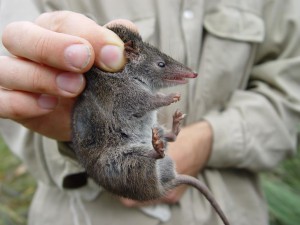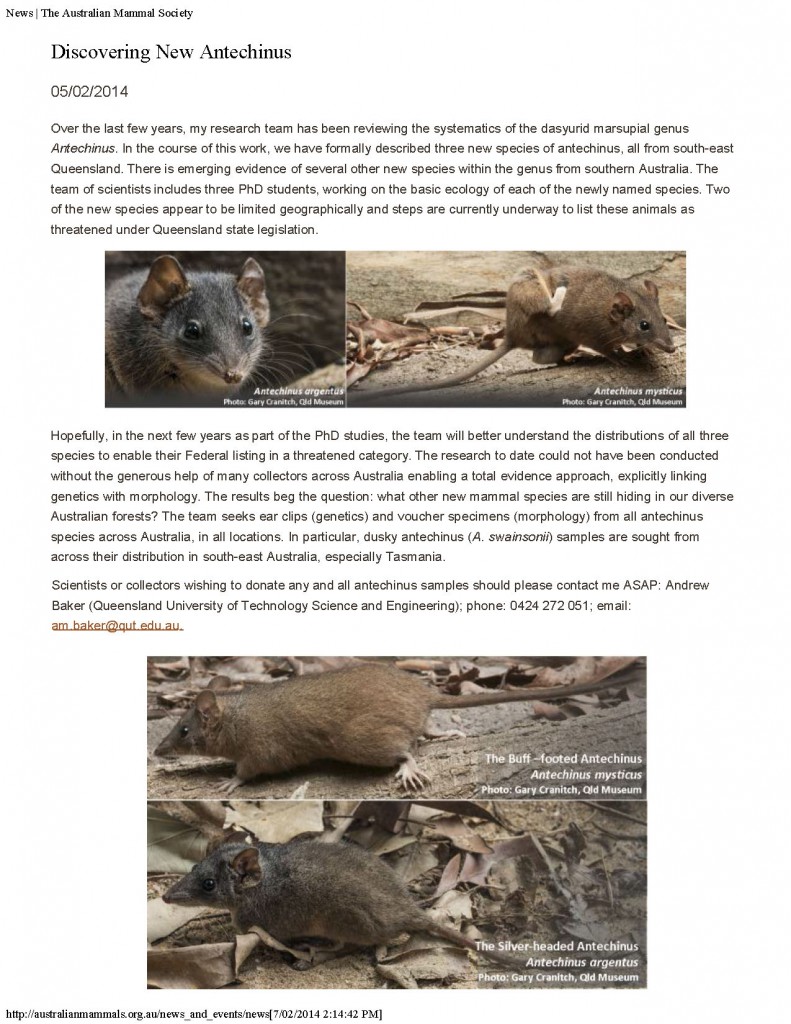The role of genetic science in classifying species
Scientists are increasingly relying on genetic studies to help them correctly describe and classify species. Sometimes genetic analysis techniques are used as a way of ensuring that a newly discovered population of a species is correctly assigned, but wider studies are also increasingly being used to retrospectively determine if single species that are more geographically widespread are correctly considered to be one and the same across their range.
Further to a blog late last year about my discovery of the Dusky Antechinus in SA, a story has just been posted on the Australian Mammal Society Website about the use of genetics to describe three new species of Antechinus in south-eastern Queensland.
The article (also see below), explains the value in tissue samples being collected by people doing wildlife survey work for enabling these studies to use geographically distinct material from across a species range. Hopefully the new Dusky Antechinus records (and associated ear-notch tissue samples I collected) will be of benefit for the upcoming research work on this species, as referred to in the article.
In another example of relevance to NGT and Aquasave work, this recent paper (lead-authored by Aquasave founder, now Curator of Fishes at the Northern Territory Museum, Michael Hammer) describes the role of genetic science in classifying Blackfish across their range in south-eastern Australia. A warning though – it is very technical stuff!
The combined efforts of many people collecting specimens and samples in the field and lodging with their state Museum make such wide-reaching studies possible – and at NGT we also do our bit when out and about doing field work.
Remember too, if you come across something dead in the bush that looks interesting or unusual – that also counts! Bag it up (securely, to contain any smell) and pop it in the freezer before contacting your state Museum to arrange transport. For help with identification, you are also welcome to email photos to us here at NGT () and we’ll see what we can do to help…



